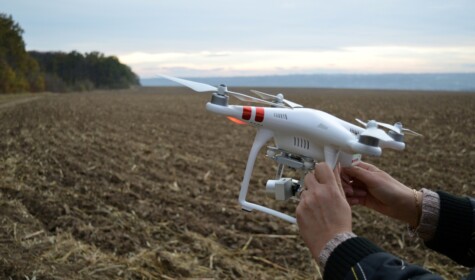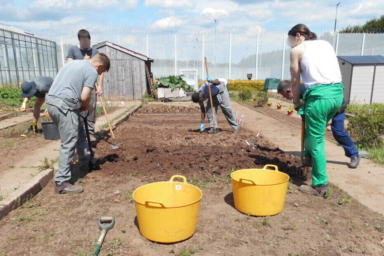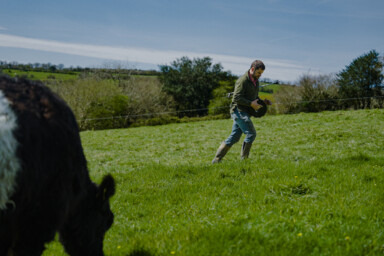A diverse landscape
For this project, A Bigger Conversation has used the term ‘agroecology’ to encompass a diverse landscape of different yet related farming approaches. While organic and biodynamic farming methods are formally defined and regulated, terms like agroecological, regenerative, nature-friendly and sustainable remain poorly defined and carry different meanings for different individuals.
The differences and lack of clarity in the definitions, we found, were both a strength and a weakness. On the one hand, agroecology is a very inclusive concept which allows farmers to find the system that works for them. On the other, a lack of a clear definition can hinder the development of a strong identity and heighten the risk of being used as ‘greenwashing’.
This complexity makes defining criteria for agroecologically appropriate technologies challenging. Nonetheless, our aim is to facilitate further discussion and debate in this area. At the halfway point of the project, here’s what we’ve learned so far.
Values-led farming
What does draw the diverse strands of agroecology together is a commitment to values-led farming. Thus, despite the variety of views around the concept of agroecology, a number of themes emerged which informed participants’ approaches to farming and, by extension, technology choices:
- Connection: Farmers and growers expressed a strong desire to foster connectivity – between themselves and their land (particularly the natural elements like soil and wildlife), between the farmer and the broader community and between the community and its food. They were wary of technologies that disrupt or sever these connections.
- Learning from experience and experiments: Learning from the land was a crucial element of their farming practices. This involved drawing knowledge from their own experiences, as well as those of neighbours, friends, fellow farmers and trusted information sources. Many participants highlighted the difficulty of accessing reliable information on non-conventional methods within the conventional agricultural system and expressed concerns that accumulating data wasn’t equivalent to genuine learning.
- Whole systems: Many participants valued agricultural systems that transcended mere production. In agroecological systems, significant connections encompass workers, neighbours, customers and society at large; nutrition and nourishment; fairness in society and equitable access to quality food and nature; dignity and enjoyment in work; self-worth, mental well-being and spirituality. Technology choices needed to align with this ‘wholistic’ perspective.
- Scale: Most farmers and growers were content with the size of their operations. They aimed to improve their land, soil, food quality, their service to the local community and the environment rather than focusing on ‘feeding the world’. Some questioned whether ‘scaling up’ or ‘being left behind’ were the only two options for agroecology’s development. Scaling up didn’t necessarily entail increasing farm size or output; it could involve connecting existing practitioners of agroecological farming to extend their reach and normalise the principles, practices and values they uphold.
Technological choices
Our participants were, for the most part, open-minded and interested to know about the benefits different technologies could bring – even those technologies they might not choose to use themselves. Two technological approaches, however, stood out as being mostly unacceptable.
Hydroponics, which severs the connection between plants and soil, was seen as antithetical to agroecological principles. Some participants acknowledged that in urban settings, hydroponically grown produce might be preferable to processed food. Nevertheless, the limited range of crops that could be grown hydroponically posed issues, as it contributed little to a diverse and nutritious diet.
Gene editing was, by a significant margin, viewed as the most inappropriate technology for agroecological systems. Concerns ranged from the unforeseen consequences of genetic manipulation to adverse effects on diversity within the food and farming system. Many participants questioned whether genetic technologies were truly addressing legitimate problems. The majority agreed that these technologies primarily benefited biotech companies, researchers and scientists, rather than farmers or consumers.










